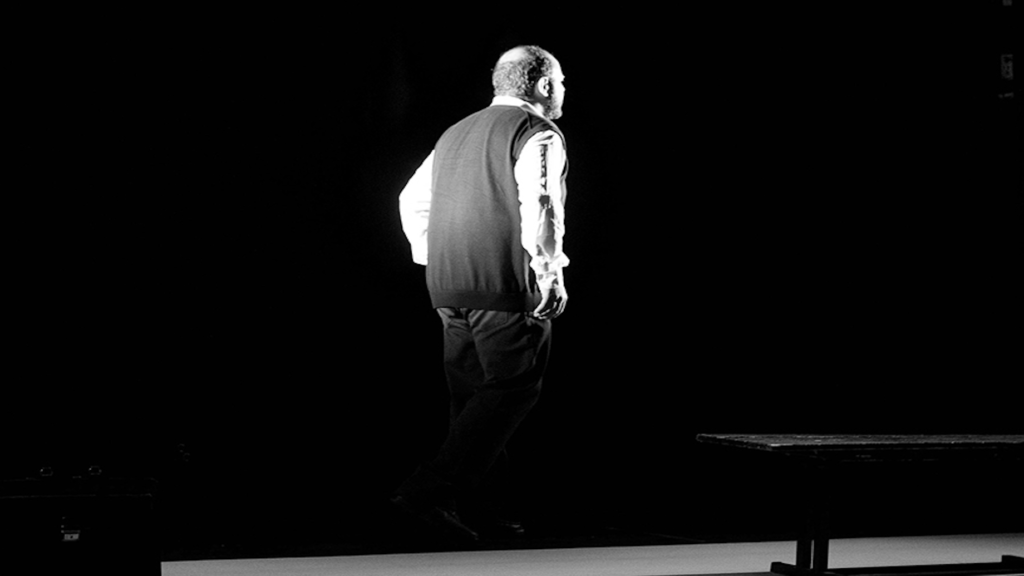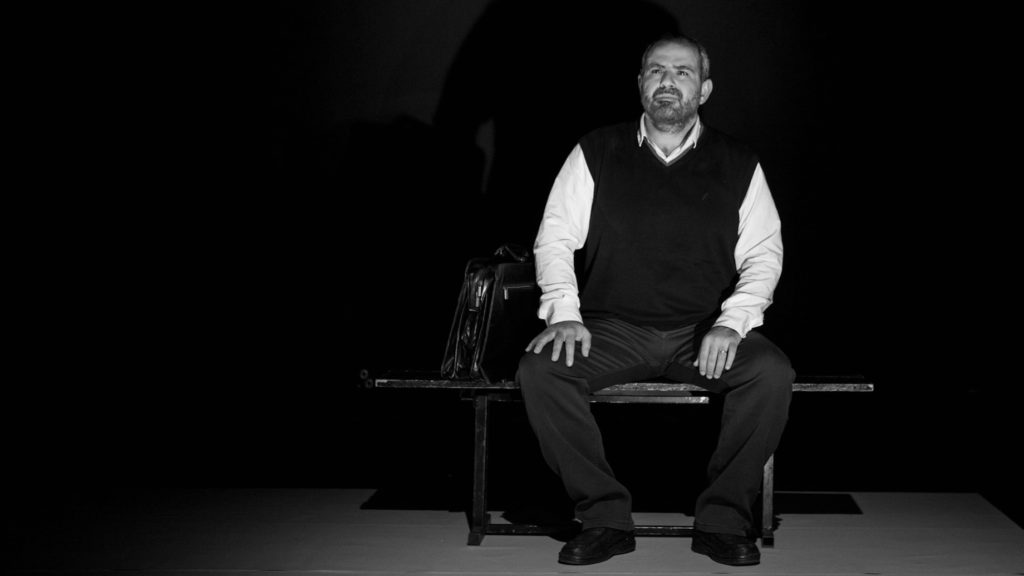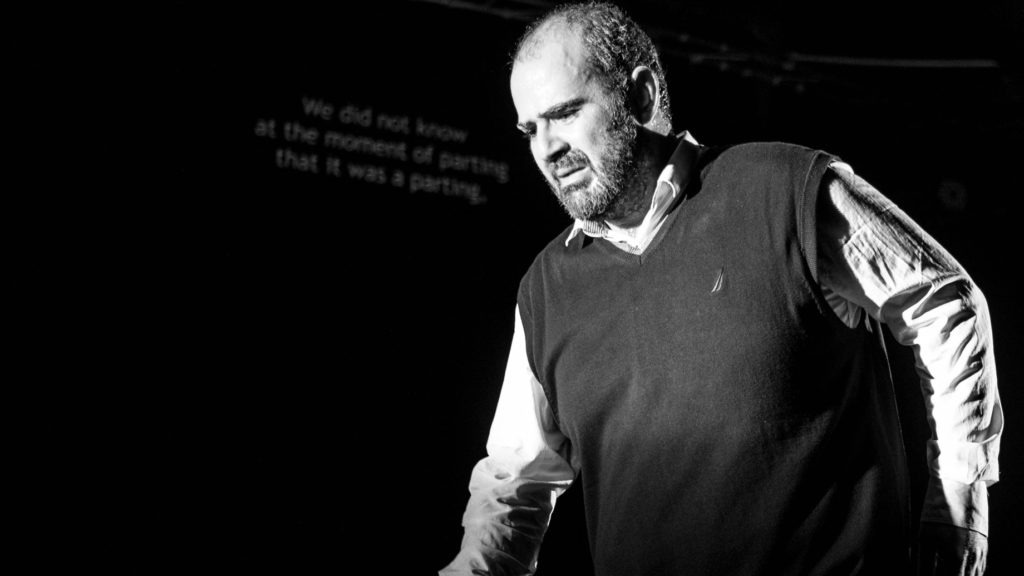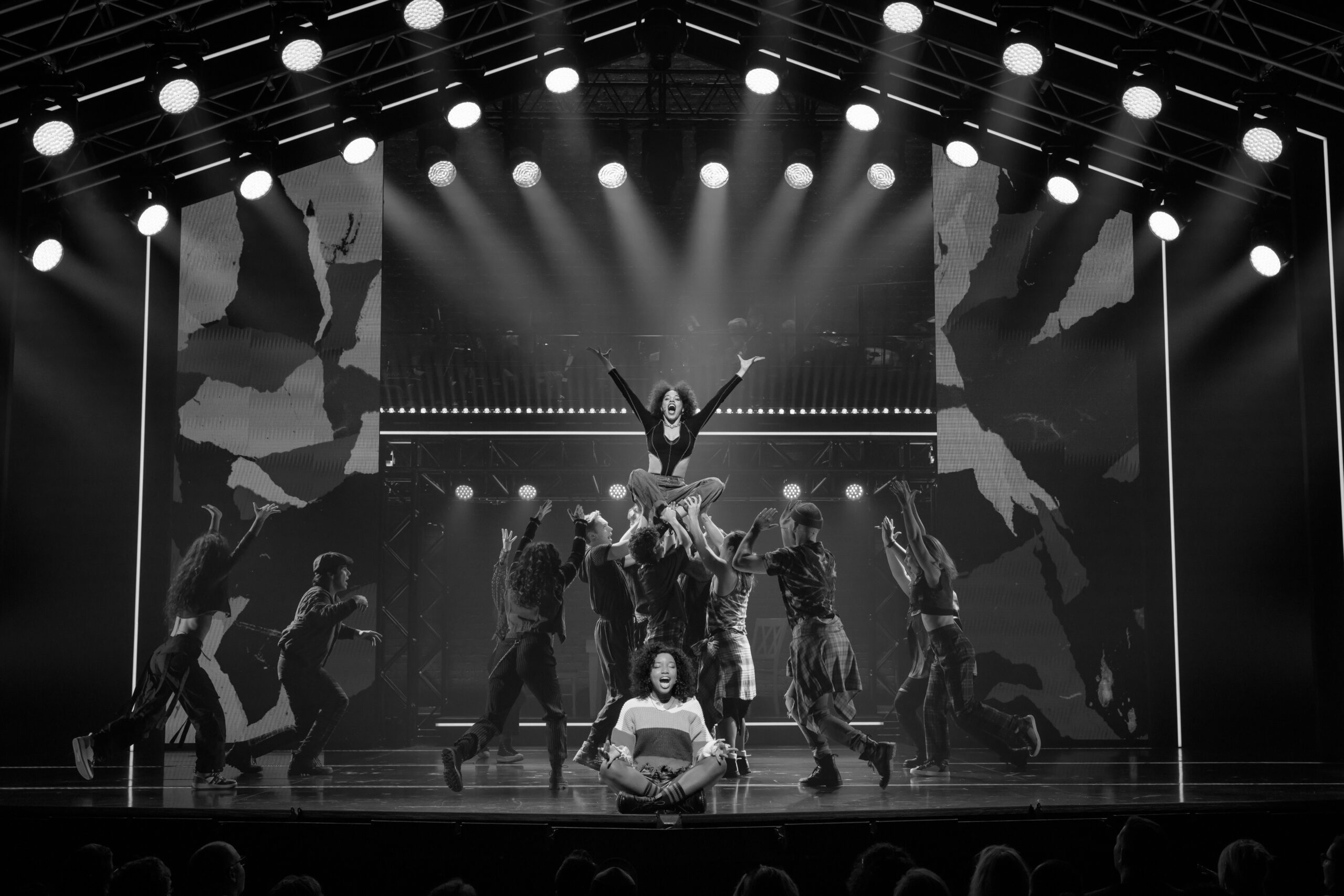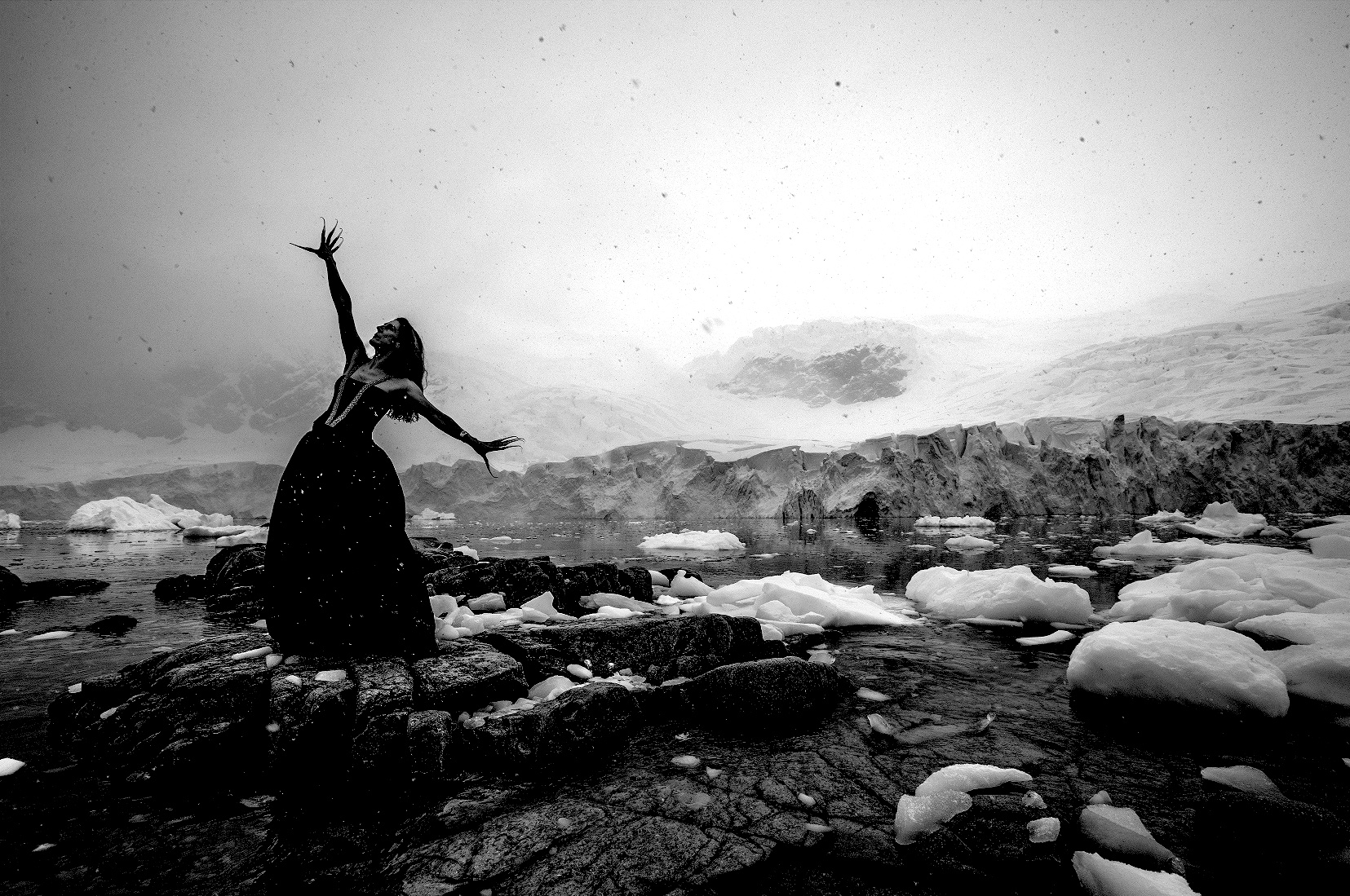TAHA
An unorthodox route away from the regular theatre doors, through a warren of service corridors and then blacked out hallways leads audience onto the stage of the State Theatre. It is a black-box with raised seating, everyone is completely disoriented; the regular house is obscured behind us. This is an ideal footing on which to begin this story, the audience doesn’t fit the regular State Theatre Opening Night demographic and embraces the off-kilter locale.
Big World, Up Close is Art Centre’s winter series of three new works with an international focus. It’s a big world, still, and you can listen to podcasts and digital radio, and watch insightful films and Netflix and Instagram stories and STILL feel that Palestine is a long way away. It is. Amer Hlehel may be playing a character, but the fact remains that he is a Palestinian man breathing here with us, eyes shining, up close, and this makes a huge difference.
This May 15th marked the 70th year of ongoing Nakba (literally ‘disaster’ ‘catastrophe’), since the 1948 Palestinian Exodus in which 700,000 people were forced or fled from their land. Among them was a boy, seventeen year old Taha Muhammad Ali, who had recently been making his family good money buying and selling in their village. He loves the trips to the port city of Haifa, where he sees men and women talking together and drinks lemonade. He is in love with Amira, and with reading. One night he loses everything amid bombs and chaos, and his family escapes to Lebanon.
We did not weep
when we were leaving
for we had neither
time nor tears
The triumph of this production is that we are carried through the hour by a super-human effort from Hlehel. He is a formidable craftsman with impeccable technique and attention to detail. The rhythm and breath in his delivery reveal time spent with Shakespeare and a respect for his subject; they also reveal a poet. He brings vibrance, joy, levity and heart to the stage with energy and an urgency for this tale to be heard and received. Taha’s words are achingly beautiful and speak of migrations, resources and love in free modern verse. The audience is left with a desire to read more (happily he survived in Nazareth until 2011, to be eighty years old). Amer Hlehel has written a remarkable and perfectly-paced ode to Taha Muhammad Ali’s youth, with care to include humour and loads of heart.
This work echoes with a resonance that is fitting with our national NAIDOC week – lost country, strange invaders, heartbreak and survival.

